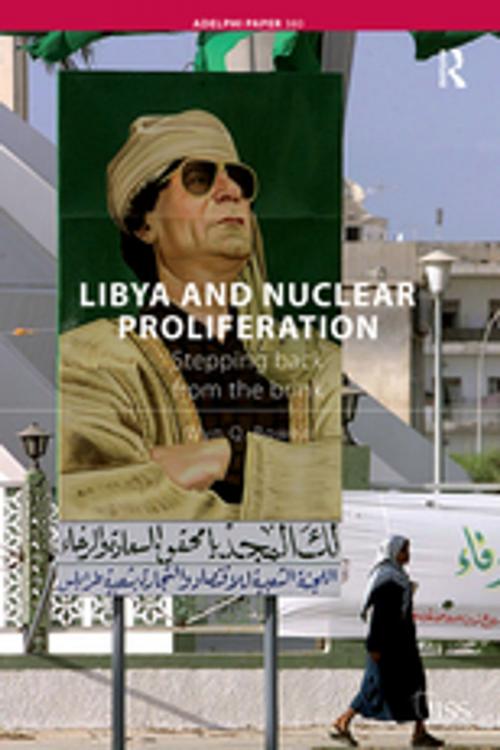Libya and Nuclear Proliferation
Stepping Back from the Brink
Nonfiction, Social & Cultural Studies, Political Science, Politics, Arms Control, History, Military, Strategy| Author: | Wyn Q. Bowen | ISBN: | 9781351225526 |
| Publisher: | Taylor and Francis | Publication: | October 3, 2017 |
| Imprint: | Routledge | Language: | English |
| Author: | Wyn Q. Bowen |
| ISBN: | 9781351225526 |
| Publisher: | Taylor and Francis |
| Publication: | October 3, 2017 |
| Imprint: | Routledge |
| Language: | English |
This Adelphi Paper examines the motives behind Libya‘s pursuit of a nuclear weapons capability, from Gadhafi‘s rise to power in 1969 through to the end of 2003. It also assesses the proliferation pathways that the regime followed during this period, including early dependence on Soviet technology and assistance, subsequently relying on technological infusions from the A.Q. Khan network. Wyn Q. Bowen clearly analyzes the decision to give up the quest for nuclear weapons, focusing on the main factors that influenced the Gadhafi regime‘s calculations, including the perceived need to re-engage, both politically and economically, with the international community, particularly the United States. It explores the process of dismantling the nuclear programme and the question of whether Libya constitutes amodel for addressing the challenges posed by other proliferators.
This Adelphi Paper examines the motives behind Libya‘s pursuit of a nuclear weapons capability, from Gadhafi‘s rise to power in 1969 through to the end of 2003. It also assesses the proliferation pathways that the regime followed during this period, including early dependence on Soviet technology and assistance, subsequently relying on technological infusions from the A.Q. Khan network. Wyn Q. Bowen clearly analyzes the decision to give up the quest for nuclear weapons, focusing on the main factors that influenced the Gadhafi regime‘s calculations, including the perceived need to re-engage, both politically and economically, with the international community, particularly the United States. It explores the process of dismantling the nuclear programme and the question of whether Libya constitutes amodel for addressing the challenges posed by other proliferators.















